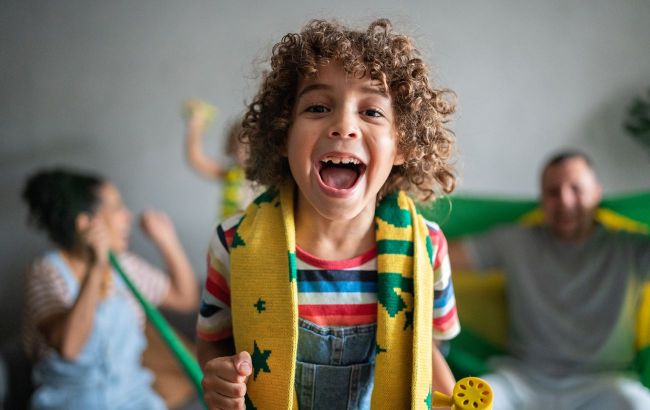Happiest children live in Netherlands: 6 things parents don't do there
 Illustrative photo (Getty Images)
Illustrative photo (Getty Images)
A renowned Dutch child psychologist, Veronique van der Kleij, who has observed various parenting styles across many cultures worldwide, says that Dutch children are the happiest in the world. She has worked with and advised families with children in the Netherlands for many years and has identified what Dutch parents do differently, citing CNBC.
They never use cars if they can ride bikes
The Netherlands has a vast cycling culture, and it starts from a very young age. As soon as a child can sit, they are strapped to a parent’s bike and taken along, no matter the weather.
Cycling through storms, equipped with appropriate rain gear, teaches children that no matter what obstacles they face in life, they can overcome them.
It also teaches independence. By the time most children are 9 or 10 years old, most parents trust them to ride their bikes to school or friends on their own. This freedom and trust help teenagers develop into autonomous, self-sufficient, and confident adults.
They never hover over their children
It’s very common to see Dutch children freely running around playgrounds without much supervision. Parents often sit on benches, calmly chatting among themselves, while their children climb, run, and fall all over the place.
From an early age, Dutch children are encouraged to explore the world around them, believe in themselves, and simply dust themselves off when they fall.
They never work over 40 hours a week
One of the main reasons the Dutch are so happy is their value of work-life balance.
Studies show that nearly half of the workforce in the Netherlands has part-time jobs. Dutch parents also take at least one day off a week to spend it with their children.
Spending this time at home means more room for children’s activities, games, clubs, sports, or just extra time to relax with their parents.
They never eat separately from their children
In the Netherlands, parents strive to have at least one meal together every day. This is a time for family members to connect and discuss their day.
A sense of connection improves the mental health of all family members and contributes to happier, more emotionally balanced children.
They never abandon structure
From the moment children are born, Dutch parents are advised to provide "rust, reinheid, regelmaat," which roughly translates to "rest, cleanliness, and structure."
Dutch children are consistently given a clear daily schedule that includes plenty of daytime naps for the little ones and prioritizes stability. For children to thrive, they need structure, predictability, rest, and hygiene.
This helps them feel safe and comfortable as they explore the unknown. This form of more authoritative parenting is often associated with positive child development.
They never say that their opinion is final word
Parents want their children to feel seen and heard. They involve their children in decision-making processes as soon as they start understanding language and communicating.
This way, children learn to negotiate and set their boundaries from a young age. When parents ask their children’s opinions and genuinely listen, they are more likely to develop a sense of positive self-esteem.
Dutch parents also do not shy away from discussing uncomfortable topics such as sex, drugs, and gender. They understand that accepting their children as they truly are is all they really need to grow into confident, happy, and well-balanced adults.

